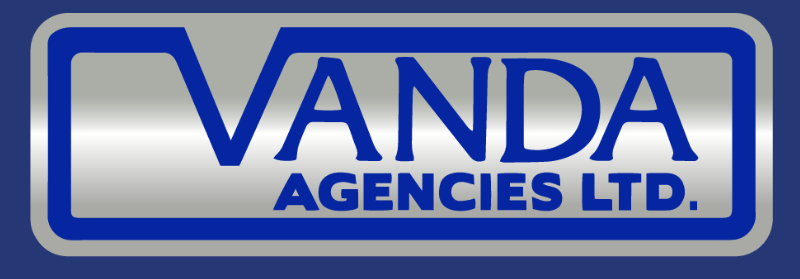Complaint Process
Didsbury Rec Hockey Complaint Process
Actively listen: This is the most important thing is dealing with conflict. Listening helps understand other’s points of view, it can help identify the concern, and sometimes it can diffuse the situation as someone just wants to be heard.
Be respectful: Being respectful means respecting the processes that are set in place to manage concerns as well as being respectful in how interactions occur. Nothing will cause conflict to spiral downwards faster than a lack of respect.
Remove emotions: When emotions are involved conflict only escalates therefore it is important to ensure that when bringing awareness to an issue it is done free of emotion. Hockey Alberta recommends waiting 24 hours before concerns are brought forward to help assist in removing as much emotion as possible. Emotions can also manifest when discussing a concern, if this is starting to occur it is ok to pause the conversation and resume when the emotions have subsided.
Be timely: The sooner a concern can be addressed the less likely conflict will become negative since it allows the opportunity for issues to be addressed when they are fresh in people’s minds. Handling issues in a timely manner also prevents increased frustration and emotion that occurs when problems seem to pile on.
Focus on the concern not the people: focusing on the person only leads to an escalation of conflict and does not have any productive outcomes, the goal of conflict is to find a solution which only happens when the focus is on the concern.
Parent, Caregiver, Family Responsibility:
If it is safe to do so, speak with the individual(s) involved in the incident in a timely manner. Follow the 24hr rule.
Address the issue the FIRST time it occurs, either through speaking with the individual(s) directly or through your Hockey Association.
Seek to self-address and manage minor conflicts with respect and solutions focused outcomes the FIRST time they happen. Your association may have identified an individual who acts as the middle member for conflicts/concerns that arise at the team level. Check with Didsbury Rec Hockey Association if you are unaware who this person is. Continue to bring issues forward, every time. Especially if it continues to occur after the first incident was actioned and/or resolved.
Submit a formal complaint to Didsbury Rec Hockey Association. If you are unsuccessful or unable to resolve the issue yourself first. Formal complaints in writing are preferred. Check in with the Association after you’ve submitted a complaint, advocate for yourself and your athlete(s), hold Didsbury Rec Hockey Association accountable to their complaint or conduct management policies and processes. If you are unsatisfied with a discipline sanction/decision made because of an investigation/review by Didsbury Rec Hockey Association, inquire about making a formal appeal on the decision. Connect with Hockey Alberta only if Didsbury Rec Hockey Association has not done due diligence and has clearly broken a policy or process.
If the concern is of serious maltreatment (for example abuse, assault, sexual harassment) make a formal complaint to the Sport Complaint Independent Third Party (ITP). https://sportcomplaints.ca/
Hockey Association (Didsbury Rec Hockey Association) Responsibility:
Holding Didsbury Rec Hockey Association accountable to following their internal policies and procedures and to Hockey Alberta’s policy and process guidelines.
Supports safe play, safe environments, and inclusion for all through guidelines, policy implementation and accountability at the Hockey Association level.
Will conduct a review of Didsbury Rec Hockey Association processes if there are sufficient details provided noting the mismanagement of a procedure, or a disregard for a policy and its process (ie; when there is evidence to show an Hockey Association has not done their due diligence).
You can find Hockey Alberta’s Policies under the Members tab “Bylaws & Regulations”. https://www.hockeyalberta.ca/members/bylaws-regulations/
Conflict Management:
Hockey is a game that brings out the passion in all of us, the key is to understand how to ensure that those emotions are used in a positive manner. When these emotions become negative and turn into conflict it is important to understand how to manage the situation. A starting point in the management is understanding conflict.
Conflict will occur: for all the good sport brings it can also be stressful - the pressure to perform, the challenges in learning, and even differences in personalities act as multipliers that can create conflict, now add in the additional factor of being a team environment and it becomes clear why conflict will inevitably occur.
Conflict is not always bad: if managed correctly conflict can have positive results such as providing clarity in roles, expectations or values, strengthening commitments, and providing new ways to look at and manage situations.
Conflict is not a contest: the attitude when facing conflict should not be focused on winners and losers but rather the focus must be on solving the issue in a mutually beneficial way.
Hockey Alberta wants to provide parents, caregivers and families with support in all areas of hockey including working through feedback, conflict and complaints.
To help guide the understanding of the role of Parents, Didsbury Rec Hockey Association (DRHA), and Hockey Alberta (HA) we have provided some guidance and information here.
Upcoming Events
Mar. 06, 2026 to Mar. 08, 2026
Didsbury Defenders rec hockey hockey tournament
Didsbury Memorial Arena









